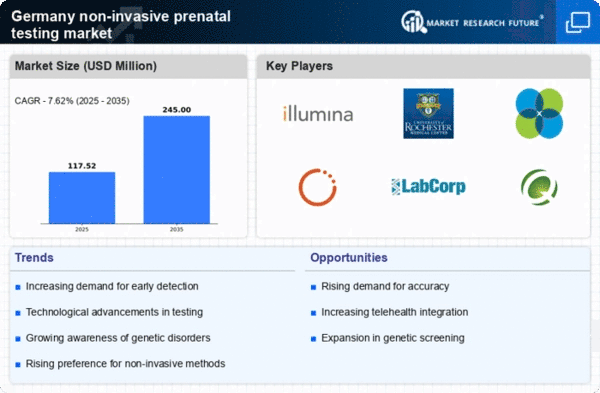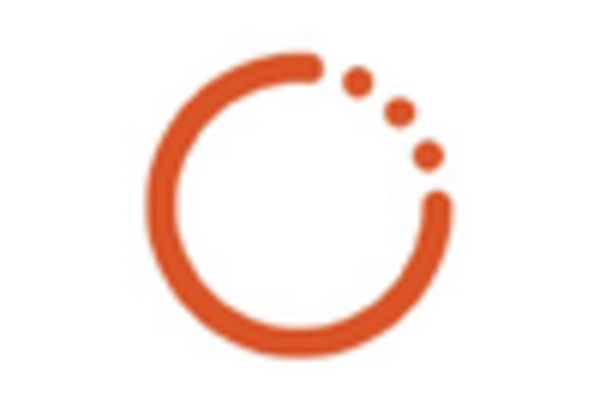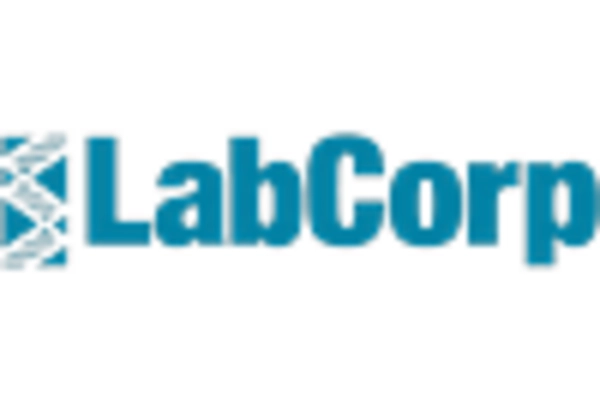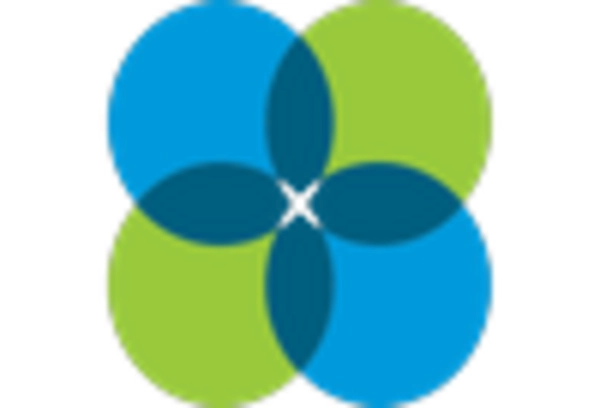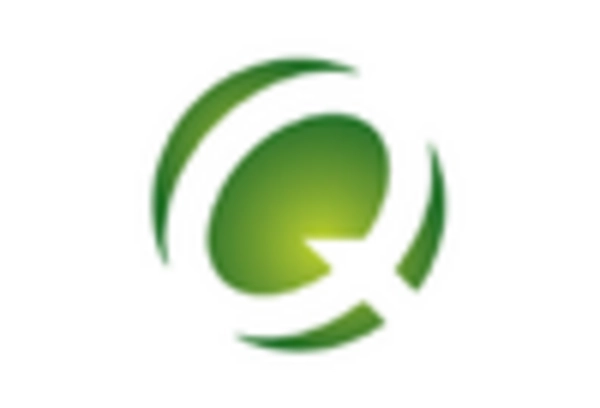Supportive Healthcare Policies
Supportive healthcare policies in Germany are fostering growth in the non invasive-prenatal-testing market. The government has implemented various initiatives aimed at improving maternal and child health, which include promoting access to prenatal testing. Reimbursement policies for non invasive tests have also been established, making them more financially accessible to a broader population. As a result, the market is expected to grow, with projections indicating a potential increase of 25% in test utilization over the next few years. These policies not only enhance access but also encourage healthcare providers to offer these tests as standard practice.
Increased Awareness and Education
The growing awareness and education surrounding prenatal health are driving the non invasive-prenatal-testing market. Healthcare professionals in Germany are increasingly educating patients about the benefits of non invasive testing, which has led to a rise in acceptance and utilization. Campaigns aimed at informing expectant parents about the advantages of early genetic screening have shown promising results, with surveys indicating that over 60% of pregnant women are now aware of non invasive options. This heightened awareness is likely to contribute to a sustained increase in demand for these tests, as more individuals seek to make informed decisions regarding their pregnancies.
Rising Demand for Early Detection
The increasing demand for early detection of genetic disorders is a primary driver in the non invasive-prenatal-testing market. Expectant parents in Germany are increasingly seeking non invasive methods to assess the health of their unborn children. This trend is reflected in the growing number of tests conducted, with estimates suggesting that the market could reach €500 million by 2026. The ability to identify conditions such as Down syndrome and other chromosomal abnormalities without the risks associated with invasive procedures is appealing to many. As awareness of these tests rises, healthcare providers are likely to see a surge in requests, further propelling the market forward.
Demographic Trends Favoring Testing
Demographic trends in Germany are contributing to the expansion of the non invasive-prenatal-testing market. With an increasing number of women choosing to have children later in life, the associated risks of genetic disorders are becoming more pronounced. Women aged 35 and older are particularly encouraged to undergo prenatal testing, as they are at a higher risk for chromosomal abnormalities. This demographic shift is likely to result in a higher demand for non invasive testing options, as expectant mothers seek to mitigate potential risks. The market could see a growth rate of approximately 20% as this trend continues to evolve.
Advancements in Genetic Testing Technology
Technological innovations in genetic testing are significantly influencing the non invasive-prenatal-testing market. The introduction of next-generation sequencing (NGS) has enhanced the accuracy and efficiency of prenatal tests. In Germany, the adoption of NGS has been linked to a 30% increase in the accuracy of detecting genetic abnormalities. These advancements not only improve patient outcomes but also reduce the time required for results, making testing more appealing to expectant parents. As technology continues to evolve, it is anticipated that the market will expand, with new testing options emerging that could further enhance the capabilities of non invasive prenatal testing.


